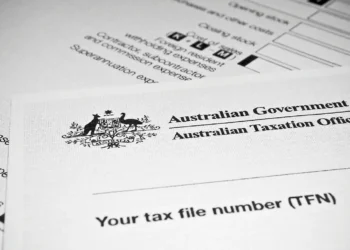Former regulator David Green questions whether allowing Star Entertainment Group to continue operating in Sydney is in the interest of the public or the company’s shareholders.
On 17 October, the Chairman of the New South Wales Independent Casino Commission (NICC) announced its planned action in response to the findings of the second inquiry into the Star casino conducted on its behalf by Adam Bell KC (Bell). Bell reported that the Star remained unsuitable to hold a casino license, notwithstanding some progress towards remediation of the many general suitability and compliance failings identified in his first report to the NICC’s predecessor in 2022.
 In announcing a fine of AU$15 million (US$10 million), and the continuing suspension of the Star’s casino license until at least early 2025, the NICC Chairman is reported to have made the following comments:
In announcing a fine of AU$15 million (US$10 million), and the continuing suspension of the Star’s casino license until at least early 2025, the NICC Chairman is reported to have made the following comments:
“We’re very heavily still motivated by what our perception of the public interest is … if Star Sydney fails, the Star Group will fail, and that’s a group that employs 9000-plus people, and if you add on to that, the huge number of suppliers to the business.” There is “no coming back if you take the license away,” he added.
The unavoidable inference to be drawn from these remarks is that Star is simply too big to fail; the economic and financial implications of failure would be so catastrophic that they must be avoided. Accordingly, the regulator has interceded on behalf of the people of New South Wales (the “public”) to allow Star to attempt not only the remediation of its unsuitability to hold a casino license, but also the resurrection of its business. Although the latter objective is clearly reliant upon Star returning to suitability while the window to do so remains open, perhaps unintentionally, the actions of the regulator may themselves perversely lead to Star being unable to resurrect its business.
In its delayed 2024 annual report, Star Entertainment Group revealed that it had 75,425 shareholders, with some 42,392 of them holding between 1 and 1000 shares. Is it in their interests that the Star be allowed to continue to operate under a substantially increased debt burden, under the Damocles sword of suspended covenant compliance testing, a severely atrophied share price, the prospect of a near-term “going concern” qualification by its auditors and a management team with potentially competing priorities?

Unlike the Nevada gaming legislation, NRS 463, the NSW Casino Control Act 1992, as amended, does not contain any meaningful guidance for the regulator as to the public policy of the state on casino gaming. In that regard, the Nevada statute contains the following:
(a) The gaming industry is vitally important to the economy of the State and the general welfare of the inhabitants.
(b) The continued growth and success of gaming is dependent upon public confidence and trust that licensed gaming and the manufacture, sale and distribution of gaming devices and associated equipment are conducted honestly and competitively, that establishments which hold restricted and nonrestricted licenses where gaming is conducted and where gambling devices are operated do not unduly impact the quality of life enjoyed by residents of the surrounding neighborhoods, that the rights of the creditors of licensees are protected and that gaming is free from criminal and corruptive elements.
In the absence of clearly articulated policy objectives, it is understandable that the NICC is reliant upon its “perception” of what the public interest requires. That said, is it, or should it be, the regulator’s job to establish what is in effect an exit barrier for a monopoly casino licensee (as distinct from the Barangaroo restricted gaming facility license held by Crown), when the license itself is expressed to be a revocable privilege and not a right? Why erect an exit barrier at all when it may deny the state the opportunity to introduce a suitable, committed and financially stable operator to succeed the one afforded the time and indulgence in which potentially it may see its business atrophy and ultimately fail?
 The notion of a business being too big to fail seems to have become well-established during the global financial crisis of 2007/8, when the term was applied to afford legitimacy to government financial support given to banks. In 2010, the Federal Reserve Chairman Ben Bernanke made the following observation: “Governments provide support to too-big-to-fail firms in a crisis not out of favoritism or particular concern for the management, owners or creditors of the firm, but because they recognize that the consequences for the broader economy of allowing a disorderly failure greatly outweigh the costs of avoiding the failure in some way.” Note the implication that support is really a last resort to avoid a “disorderly” failure, presumably as opposed to one precipitated by regulatory action, for example.
The notion of a business being too big to fail seems to have become well-established during the global financial crisis of 2007/8, when the term was applied to afford legitimacy to government financial support given to banks. In 2010, the Federal Reserve Chairman Ben Bernanke made the following observation: “Governments provide support to too-big-to-fail firms in a crisis not out of favoritism or particular concern for the management, owners or creditors of the firm, but because they recognize that the consequences for the broader economy of allowing a disorderly failure greatly outweigh the costs of avoiding the failure in some way.” Note the implication that support is really a last resort to avoid a “disorderly” failure, presumably as opposed to one precipitated by regulatory action, for example.
 Bernanke went on to list what he saw as risks associated with classifying some businesses as too big to fail, the most immediately pertinent of which is the following: “If creditors believe that an institution will not be allowed to fail, they will not demand as much compensation for risks as they otherwise would, thus weakening market discipline; nor will they invest as many resources in monitoring the firm’s risk-taking. As a result, too-big-to-fail firms will tend to take more risk than desirable, in the expectation that they will receive assistance if their bets go bad.”
Bernanke went on to list what he saw as risks associated with classifying some businesses as too big to fail, the most immediately pertinent of which is the following: “If creditors believe that an institution will not be allowed to fail, they will not demand as much compensation for risks as they otherwise would, thus weakening market discipline; nor will they invest as many resources in monitoring the firm’s risk-taking. As a result, too-big-to-fail firms will tend to take more risk than desirable, in the expectation that they will receive assistance if their bets go bad.”
The Star has apparently not received any government bail-out, but critically it has retained its ability to utilise its suspended casino license.
Arguably the integrity and sustainability of a banking system is far more important to an economy, and society in general, than is the case with a casino, even one which enjoys a state-mandated monopoly. Alan Greenspan, also a former Chairman of the Federal Reserve, has opposed support for businesses supposedly too big to fail, saying, “If they’re too big to fail, they’re too big.”
 In fairness, the NICC is in an invidious position with Star. It has not been assisted by a clear articulation of public policy, especially since the advent of the license awarded to Crown to operate its Barangaroo facility. However, in deciding to kick the suitability can further down the road, it has arguably not taken the optimal course if it is truly guided by its perception of what the public interest requires. Little wonder that the Australian media in particular has struggled to understand how egregious a failure of suitability must be in order for it to result in license cancellation.
In fairness, the NICC is in an invidious position with Star. It has not been assisted by a clear articulation of public policy, especially since the advent of the license awarded to Crown to operate its Barangaroo facility. However, in deciding to kick the suitability can further down the road, it has arguably not taken the optimal course if it is truly guided by its perception of what the public interest requires. Little wonder that the Australian media in particular has struggled to understand how egregious a failure of suitability must be in order for it to result in license cancellation.































